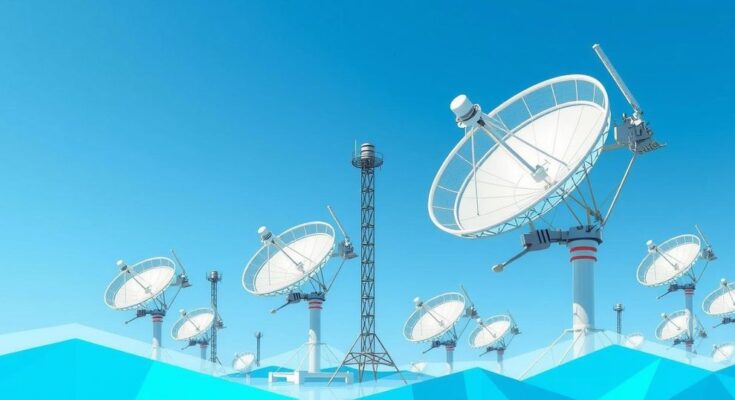Elon Musk’s Starlink service faces delays in South Africa due to Black ownership laws, which he claims are discriminatory. The B-BBEE policy, aimed at economic equality, necessitates significant local equity for foreign companies. While there is a demand for improved internet access, concerns over Musk’s influence and lax regulation remain prevalent.
In South Africa, billionaire Elon Musk has voiced concerns regarding the country’s Black ownership laws, which he believes hinder the expansion of his internet service, Starlink. Musk has criticized existing legislation aimed at addressing post-apartheid inequalities, labeling them as “racist ownership laws”. On social media, he claimed that Starlink’s operations are stymied because he is “not black,” suggesting that these laws disproportionately affect his ability to launch his services in the country.
Musk’s remarks come in the context of South Africa’s Broad-Based Black Economic Empowerment (B-BBEE) policy, implemented in 2003 to promote economic parity in a post-apartheid landscape. This policy mandates that companies include Black South Africans in their ownership structures. Despite the theoretical benefits, critics contend that B-BBEE has often devolved into a mere formality, exploited by corrupt entities while deterring foreign investment. An analysis indicated a spike in Black-owned businesses but revealed a subsequent decline post-COVID-19.
The B-BBEE framework poses specific challenges for companies like Musk’s SpaceX, which operates globally. To meet local regulations, SpaceX would need to divest at least 30% of its South African operations to historically disadvantaged groups or engage in community investments. Despite its interest, SpaceX has not yet formally applied for the necessary licenses, having previously withdrawn from regulatory discussions on licensing.
While South Africa boasts a 75% internet penetration rate, a noticeable gap persists between urban and rural connectivity. Starlink could enhance broader access and competitiveness in the internet market, potentially reducing costs. However, concerns also arise about Musk’s influence over information flow, as illustrated by suspicions surrounding Starlink’s role in geopolitical negotiations. Locals express skepticism over possible preferential treatment for Musk, questioning the fairness and integrity of their ownership laws.
Starlink has been identified as a means to connect underserved areas, specifically through previous illegal uses for vital services like cancer screenings and educational initiatives.
Elon Musk’s criticisms of South Africa’s Black ownership laws underscore the larger conversation surrounding economic equality and regulatory compliance for foreign companies. The B-BBEE policy aims to promote inclusivity for historically marginalized populations but faces scrutiny for its practical implementation. With Starlink’s potential to enhance digital connectivity in the region, the ongoing discourse reflects a significant intersection of technology, legal frameworks, and socio-economic development.
Original Source: www.context.news




